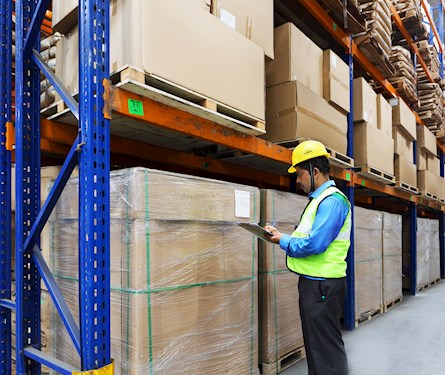The disruption of last year was unprecedented, which has made it more important than ever for beneficial cargo owners to build greater resilience into their logistical plans. Resilience is spoken about often in logistics – and for good reason.
A resilient supply chain can help companies to avert significant financial losses. Resilience means ensuring a supply chain is protected against unforeseen risk, allowing for disruption to be overcome and successful deliveries to be completed.
The challenges of 2020 brought this issue into sharp focus, which is why, according to the Association for Supply Chain Management, resilience has been identified as a top priority for supply chain executives this year.
As an established leader in the logistics industry, DP World has seen, first-hand, the damage and disruption caused in 2020. The Covid-19 pandemic exposed how vulnerable many supply chain networks were, and while stakeholders will not expect supply chain executives to perfectly forecast against the future, they will expect a greater resilience. The time to respond is now.
Making a change
A resilient supply chain allows managers to react and quickly recover from disruption when it happens. Having a reliable and quickly actionable contingency plan can strengthen customer service, retain market share, and potentially improve financial performance. Logistics depend on relationships that prove their worth during times of uncertainty and transition. This is why DP World is committed to creating long-term partnerships that help to solve cargo movement challenges, deliver consistency, and drive value and growth.
Building this kind of resilience into a supply chain is now a critical part of logistical oversight. Supply chains have become increasingly complex and global in nature. This interconnectedness means supply chains may be exposed to risks that are not fully apparent from the outset. This only heightens the need for greater resilience to be maintained throughout such arrangements.
Over the long term, creating resilient supply chains is integral to economic recovery and the ability to cope with inevitable black swan events. This will involve reconfiguring supply chains and ensuring networks are robust in way that they were not at the beginning of 2020. Considerable resource and expense will be critical. Taking this into account, the global logistics community has already started taking clear and decisive action. According to the Trade in Transition report commissioned by DP World, 83% of senior supply chain executives said they were actively reconfiguring their supply chain arrangements in direct response to the pandemic.
Supply chain resilience goes beyond risk prevention. Resilience allows all companies involved to minimise financial losses from disruption and ultimately outperform competitors. It is inevitable that some failures will occur, but those with strong contingency planning will stand the best chance of success and this will not go unnoticed by customers.
At DP World, we understand it is impossible to predict and prevent against all risks. The Covid-19 pandemic is a global and unprecedented historic event, but risks can come from numerous other sources, such as geopolitical instability, adverse weather, natural disaster, trade disputes and mechanical failure. Achieving 100% protection from such events is impossible but being able to absorb such shocks and respond effectively is the real measure of effective supply chain management.
The coronavirus pandemic has brought the importance of robustness and resilience to the forefront of the logistics industry. Successfully managing a supply chain and meeting targets during a period of disruption will emerge as a true measure of quality, and one that particularly matters in 2021.
At DP World, we have the resources to build capacity and support growth. By continually investing in talent and technology, we understand the future of global trade and work tirelessly to enable the smooth flow of goods, resources, and people around the planet.
***This is the first in a series of articles exploring this topic. In this series, we will examine what is required to ensure supply chains remain resilient in the “new age” of logistics. This will include the importance of finding talent early, elevating flexible shipping and fulfilment options, using digital tools to predict disruption, and the ever-growing importance of cyber security.












